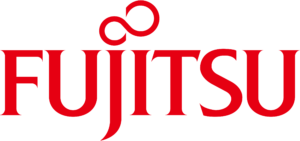Depending on the category of the physical archive, the appropriate methods and best practices for each case are applied.
For printed material, DSA uses high performance and precision scanners (production scanners, book scanners, flatbed scanners).
The outcome of digitization is processed/enhanced with special software, so that the final result depicts the prototypes in the optimal way, ensuring fidelity, integrity and clarity.
Digitization also involves various tasks of a professional workflow such as watermark
placement, OCR, conversion into various file formats (e.g. TIFF, JPEG, PDF PDF/A, JPEG2000) as well as indexing and Data Capture depending on the requirements.
Digital Archiving allows the long preservation of structured digitized documents.
Advantages
- Increased productivity: Ability to share, collaborate, exchange and access documents in seconds
- Cost efficiency: The cost of printing, paperwork, equipment management, paper records maintenance and space may be reduced or eliminated.
- Accessibility: Digital documents can be easily accessed through the cloud or document management system using any device that has access to the internet, anywhere and anytime. Optical Character Recognition (OCR) along with proper indexing of the documents help in searching and accessing the data efficiently saving time and effort.
- Security: A digital document may be protected and be accessible only to specific individuals
- Enhanced information preservation: Information stored in paper formats is degradable, and degrades further every time it is handled manually. Digital Archiving ensures that your business’s most important data is saved and preserved for the future.
- Disaster recovery: Digital Archiving offers a safe repository of the data which can also be shared on cloud or a local document management system. Any case of physical disaster (e.g. earthquake, fire or flood) will not affect the well being of the archive/data.
- Saves space: Digital Archiving eliminates the need for physical storage space.
- Environmentally friendly: Digital Archiving eliminates the need of creating multiple backup copies and unnecessary printing.
- Digital Transformation: Digital Archiving is a first step in building a digital transformation plan. Early adoption is the key for organizations to ensure digital success and focus on cost savings and standardization.
Stages
- Analysis of physical archive/ digitization specifications
- Setup (hardware deployment, software configuration & deployment)
- Receipt & check of physical archive
- Preparation of physical documents
- Identification of documents
- Scanning
- Classification/Indexing of digitized documents (manually or with Intelligent Document Processing / OCR – Optical Character Recognition)
- Post scan processing of physical archive
- Quality Assurance
- Production of final deliverables (searchable digital documents and corresponding reports)
- Import to Document Management System




